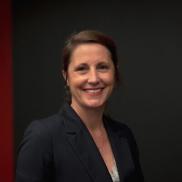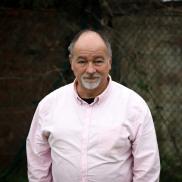

Singer
Getting started in the diplomatic world
When I graduated from the School, I applied for several positions. Following these applications, I was contacted by the Kuwaiti Embassy in Paris without knowing why at first because the job offer mentioned that it was an organisation but did not specify which one. I eventually took over the ambassador's office and public relations.
I then joined the Saudi military office under the defence attaché. The jobs of ambassador and defence attaché are different. The ambassador is the representative of the country's foreign ministry. The defence attaché is the representative of the country's ministry of defence, which is a bit like that but in a military environment. I was recruited to this position but with wider responsibilities.
The international aspect attracts me a lot and I must say that I was served because I was in contact with cultures very far from my own.
I had to adapt the way I worked. It was complicated to make both the link and the barrier between Saudi Arabia (my employer) and my own country.
After spending seven years in the embassy world, with a very good salary and big challenges, I decided to take my career in a new direction by moving into music.
Turning a passion into a profession
This career change went well. I learned the codes of jazz that I had never delved into. It's a musical style that made me dream, so I went for it.
I was lucky enough to learn from the great Parisian and American masters.
The Duc des Lombards, which was a mythical jazz club where I dreamed of performing, finally became my second home! I was the first woman to run the After Hours which took place on Friday and Saturday nights. It was a great source of pride for me. Joining the world of music was a great rebirth for me, which I recount in my music album.
I used to consider music as a hobby. When my brother left, I remembered that I had this dream of becoming an artist and that I only had one life. I was quickly carried along by a multitude of signs that I interpreted as encouragement. This was to be my destiny.
Finding one's place in music
When I was younger, I was one of those people who felt like they were from another planet. It's not always fulfilling or reassuring to feel different. I always reproduced this pattern of going towards the unknown, first of all, because it is very enriching but also because I was looking for myself.
At 20, I had a great capacity for resilience and a desire to prove many things to adults. I was used to fighting against adversity.
When I turned to music, everything became easy. All of a sudden I found myself with people who were like me, it was great.
I let go of that job security and became independent. I had to work a lot with the music on one side and the business on the other. When you become independent, you have to go and find work. It's not easy to start from scratch after the age of 30 either.
I've had some incredible opportunities, for example, when I was in Jazz Street in Paris, I played with people like Roy Hargrove. I was also called by the drummer Ali Jackson who played with Aretha Franklin and by Manu Katché to sing his music on TV shows. I also did a co-headlining set with Melody Gardot. And then there was the Voice...
Experiencing TV studios
I was contacted by the casting team to take part in the show with a piano voice in front of 11 million viewers.
Being on television offers enormous visibility. It's an extraordinary experience because it's very special to be so exposed, to be recognised in the street, to be praised by the production.
On a musical level, it gives you access to very high-level vocal coaches, who work with Céline Dion for example. I learned a lot on a technical level. It has been a human but also a musical adventure.
People always say that you shouldn't put all your eggs in one basket. I think that's true in terms of business but also for yourself. It helped me psychologically to feel strong in other fields than music, it was a bit like a crutch.
Harnessing your business skills
The teaching at EM Normandie is very complete. For my musical career, I had entrepreneurial reflexes. It was great to be able to develop a strategy to conquer this profession with an acceptance of the commercial side of music. This is not the case for all artists.
During my studies, I learned how to draw up a business plan, identify a target audience and find a marketing position.
When the product you are selling is yourself, it is not always easy to have the necessary distance. My training allowed me to stay the course.
Today I consider myself independent because I manage all aspects of my career. I have a product to sell, and you have to canvass to get yourself known.
Seizing opportunities
When I took the entrance exams, I was accepted by several schools. I chose EM Normandie because it is located in Caen, a city where I was involved in several artistic projects. I don't regret this choice because I had great opportunities on the musical level. I sang at the Accor Arena (Paris-Bercy) and at the Zenith in Caen.
During these performances, I was spotted by producers who got me to sign a contract with Sony Music. I was able to experience the music business with its big budgets, for example, video shoots in the United States and Canada costing several thousand dollars. I sang in front of 300,000 people at the Eiffel Tower for the "Fête de la Musique" (summer music festival), which was rebroadcast on the French television. I took part in the Fort Boyard show, which was really fun.
Thriving in a niche market
I'm much happier in jazz music because I like authenticity and honesty. I wouldn't have seen myself becoming a big star even though you can't complain about being Lady Gaga!
Music is sacred to me and I wouldn't have wanted to make any concessions.
I knew the period of the music business when it was a big industry. Nowadays, with streaming, fewer records are sold. Also, I have the feeling that people are going out less to see concerts. Music had its golden age and it's different now. This suits me personally, because I thrive on stage. I manage to tour in festivals in France and abroad. I live from my passion, and that's what matters to me. I don't care if I earn less money than if the music industry was still working as it used to.
When I created my first EP at the time of The Voice, I didn't want to make it available for free on YouTube. I finally realised that it was essential to be there, especially to promote my music. Sometimes you learn to let go of certain things.
Testimonies
See all testimonies-

Caroline Lemercier
From EM Normandie to Brand & Design Director
Caroline Lemercier, who graduated from EM Normandie in 2010, tells us about her career path. From her gap year between Paris and Los Angeles to her eight years in an advertising agency before joining Meetic, her career illustrates the importance of curiosity, adaptation and meeting new people.
-

Bruno Roy
Reinventing yourself thanks to EM Normandie
After a 15-year career, Bruno left everything behind to go back to school and become independent thanks to EM Normandie's Master in Management. Find out how this holistic programme enabled him to reinvent himself professionally and become the top student in his class.
-

Julien Poisson
A taste for research
As a doctoral student at the University of Caen, I was surprised to decide to do a thesis, a decision that came about during my Master's 2, particularly inspired by the economic intelligence courses.
-

Delphine Cudelou
Director General, Chamber of Notaries, Court of Appeal of Caen
She explains how she has built up a powerful network. In just a few years, she has gone from a communications position to general management in the notary's field.
-

Christelle Dorange Findeling
Line Pilot
Graduated in 1991, she discovered the world of aviation thanks to the Junior Entreprise of EM Normandie. She tells us all about her journey to reach her dream job.
-

François Patissier
Actor
After working for several years in advertising, he followed his vocation to become an actor, his passion for over 25 years.